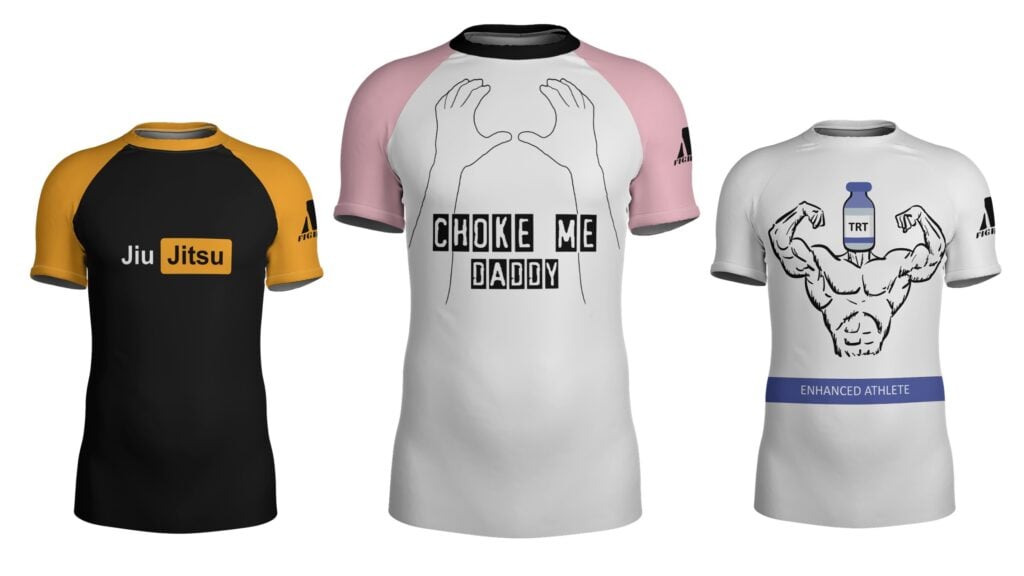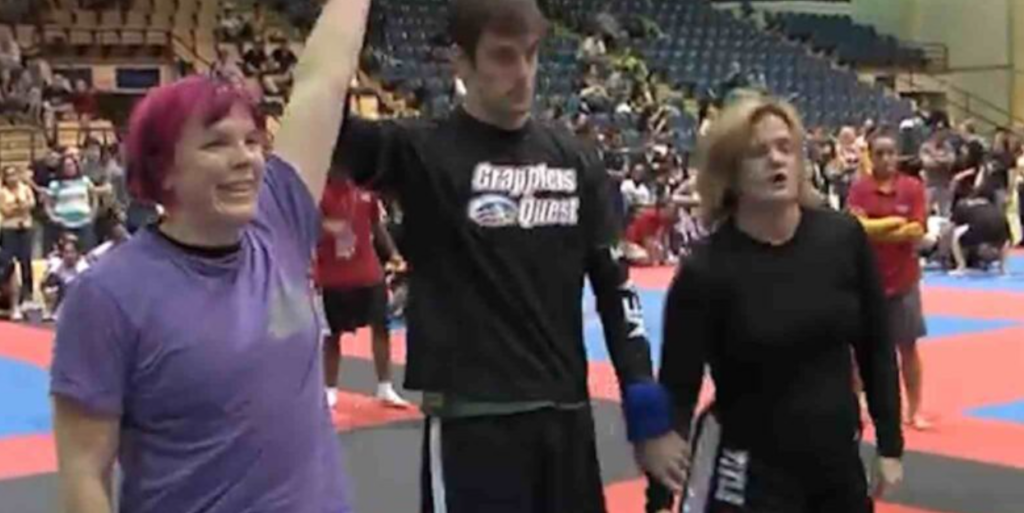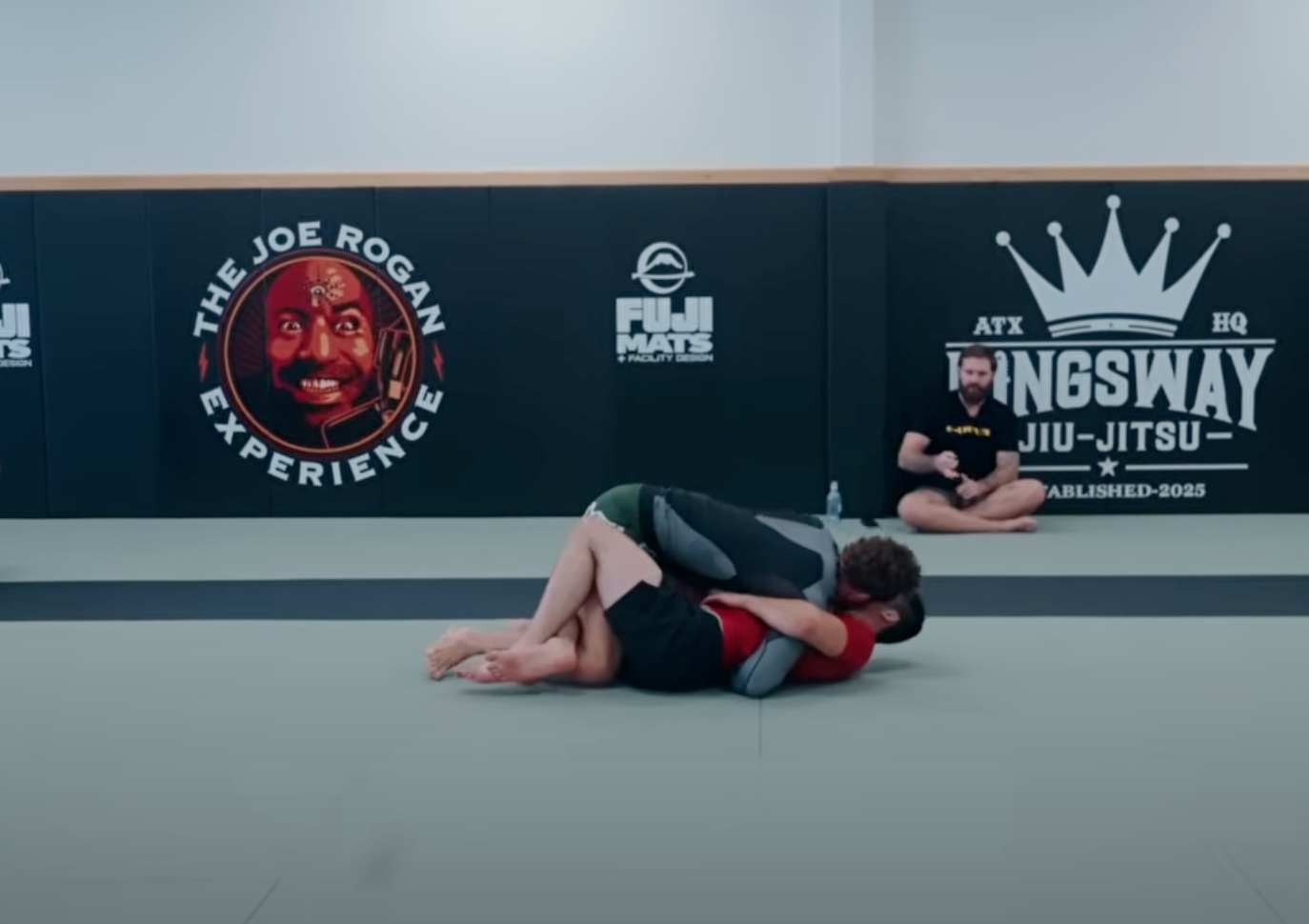


-
A trans grappler white belt from Florida sparked debate by asking how to get promoted in BJJ without competing.
-
Governing bodies like IBJJF, NAGA, and ADCC currently require trans women to compete in men’s divisions.
-
The grappler’s letter raised broader questions about recognition, inclusivity, and belt progression in the sport.
Brazilian Jiu-Jitsu has long branded itself as the “gentle art” — a space where technique trumps size, and everyone from toddlers to retirees finds purpose. But for one transgender athlete, that philosophy is being tested.
In a candid and heartfelt letter shared online recently, a 28-year-old white belt trans grappler from Florida opened up about a painful but honest question:
“How do I get promoted if I don’t compete?”
A Trans Grappler Letter That Hit a Nerve
The athlete, who has been on hormone replacement therapy (HRT) for six years and legally holds an “F” gender marker, initially took up Jiu-Jitsu for self-defense.
“I originally got into the sport as a way of learning practical self-defense with all the anti-trans rhetoric going around and living in the state of Florida,” they wrote. “But now that I’m in it, I want to get belted beyond a white belt.”
Their issue isn’t just personal — it’s systemic. Promotions in Brazilian Jiu-Jitsu, while technically left to the discretion of instructors, are often heavily influenced by competition experience. That’s where the conflict begins.

Grappling With the Gender Divide in Competition
Standing 5’7” and weighing 125 pounds, the trans grappler in question trains mostly with women at their gym. While noting their leg length as a modest advantage, they also candidly admit, “I’m not in great shape. I get tired faster than girls half my size.”
But competition isn’t just a question of cardio.
“I’m not entirely opposed to competing against men, but I also don’t want to make a scene about it, and I have F legally on my documents.”
That’s where the governing bodies come in.
-
NAGA: Requires transgender women to compete in men’s divisions.
-
ADCC: Maintains that competitors must register in their sex assigned at birth.
-
IBJJF: Implements strict requirements aligned with biological sex.
The options for trans women, then, are murky at best and exclusionary at worst.
When the Mat Isn’t Neutral
In response to the post, the BJJ community delivered a mix of empathy, pragmatism, and resources. One practitioner clarified a common misconception:
“Most coaches base promotions on time, effort, conceptual knowledge, skill, how you do in rounds at the gym, attitude, teaching ability, etc. Competition is optional and many people never do it.”
Others recommended connecting with LGBTQ+-affirming networks like Triangles Everywhere, an international group supporting queer grapplers with subgroups specifically for trans athletes.
Tournaments in places like Seattle were mentioned — events that “skew more inclusive” but often require travel, time, and financial flexibility.
BJJ Promotion Anxiety Is Real — and Widespread
The letter struck a chord not only because it was emotionally vulnerable but also because it raised an unspoken tension in the sport. For practitioners who don’t compete — whether due to anxiety, safety, gender policy, or simply life — how do they prove they’ve earned their next belt?
And for a trans grappler, the burden is even heavier.
Unlike most sports, BJJ belt ranks are public and visible. Walking into a gym as a purple or brown belt brings expectation. Skipping competition entirely may leave many trans practitioners feeling underqualified or under scrutiny.
Broader Echoes in the Combat Sports World
The timing of the letter couldn’t be more poignant. Trans inclusion is at the forefront of multiple sports — from NCAA swimming to Olympic weightlifting — and BJJ has yet to produce a unified response.
While gymnastics has seen a rise in acceptance, as recently reported by the Associated Press, grappling sports remain hesitant. That hesitancy leaves individual athletes caught between legal recognition and tournament rules that don’t reflect it.
The trans grappler question might seem simple: “How do I get promoted if I don’t compete?”
But its implications are profound. It’s about whether Jiu-Jitsu is a place for self-expression or a rigid hierarchy. Whether it welcomes all bodies — or only the ones it knows how to categorize.
In a sport where belts are earned, not given, maybe the real question is: What are we truly rewarding?
Transgender Jiu-Jitsu Black Belt Claims Trans Athletes Don’t Have An Advantage
Policy Updates in Jiu-Jitsu Tournaments: Regulations Regarding Transgender Athletes
NEW Trump Executive Order Bans Trans Women From US Sports








